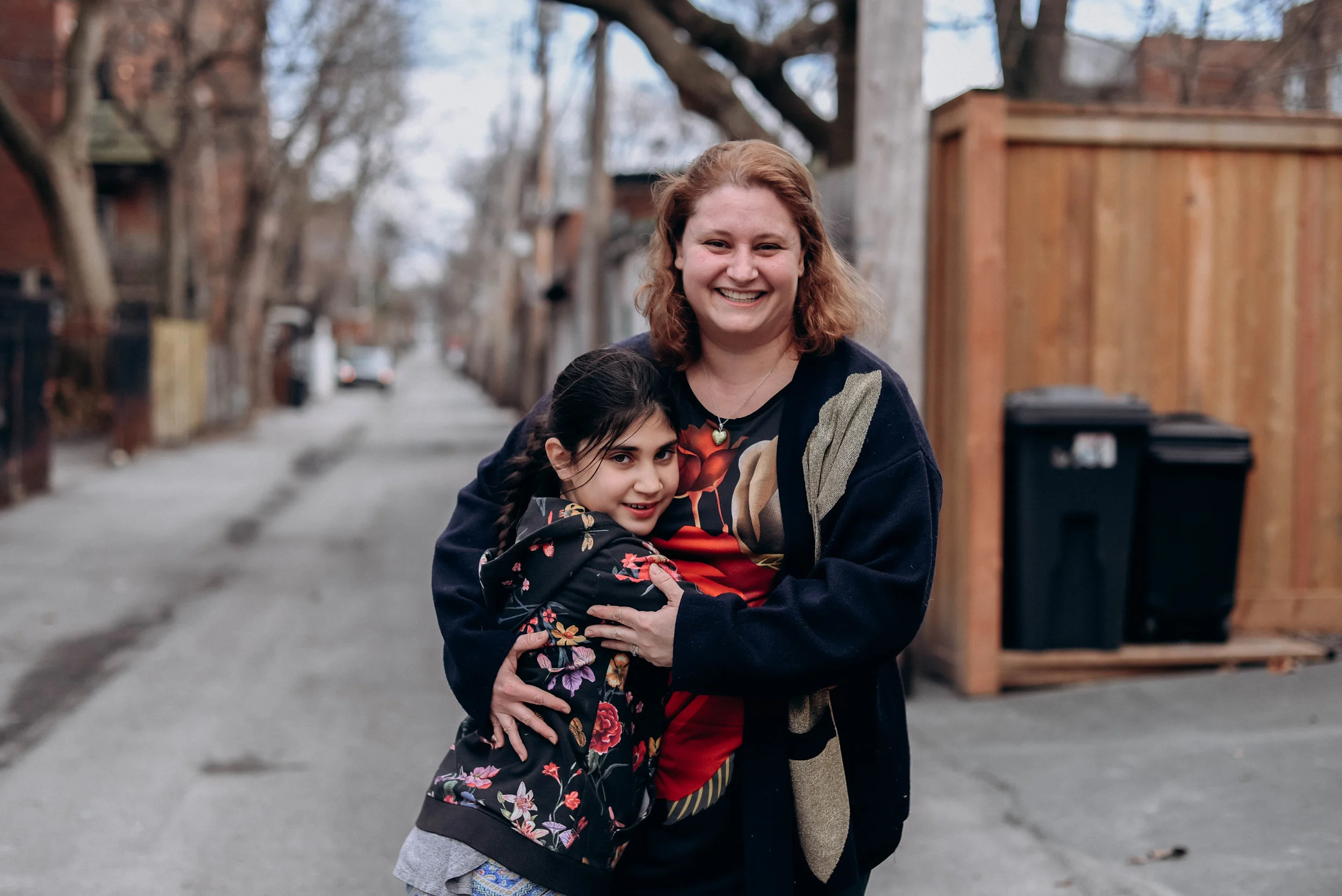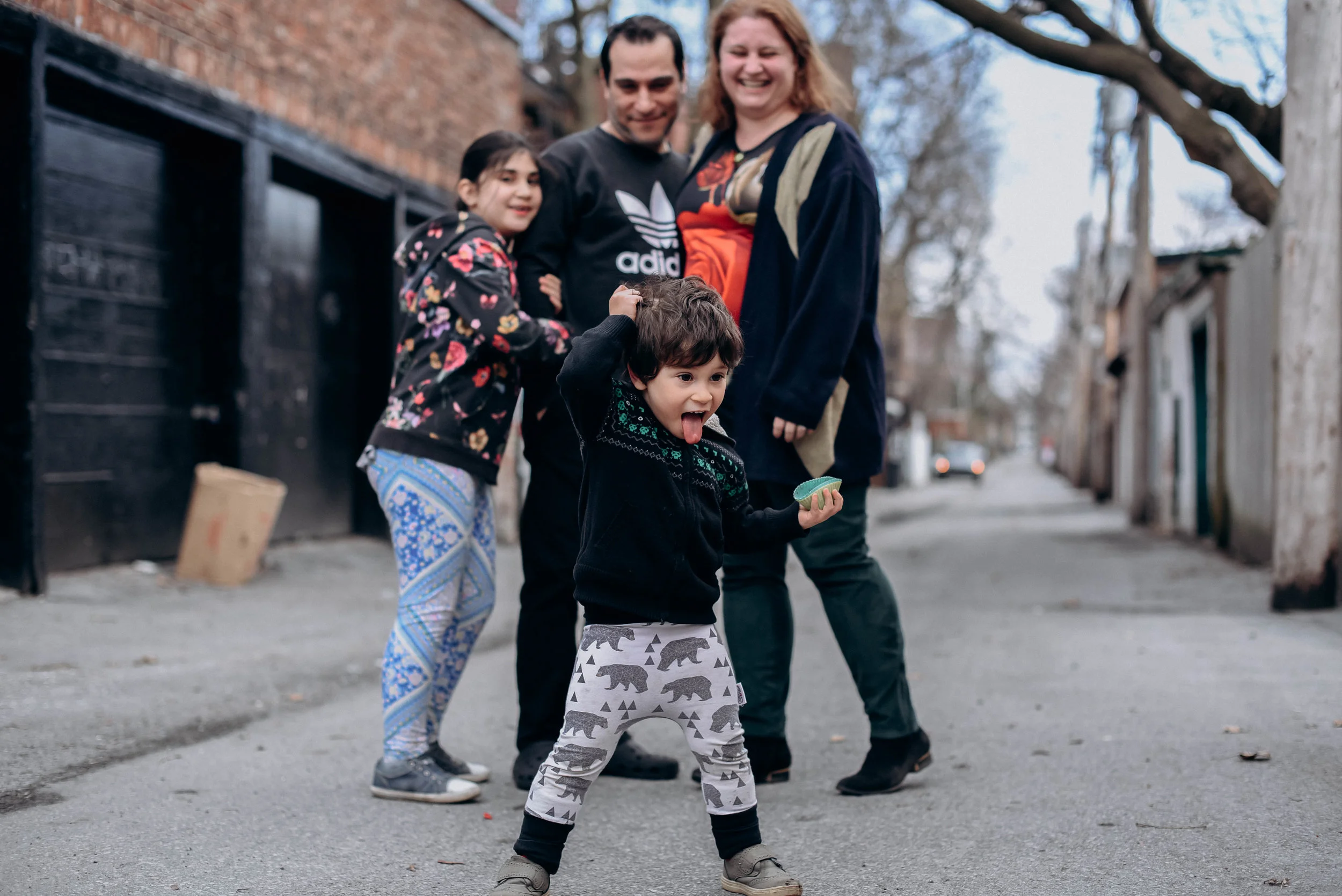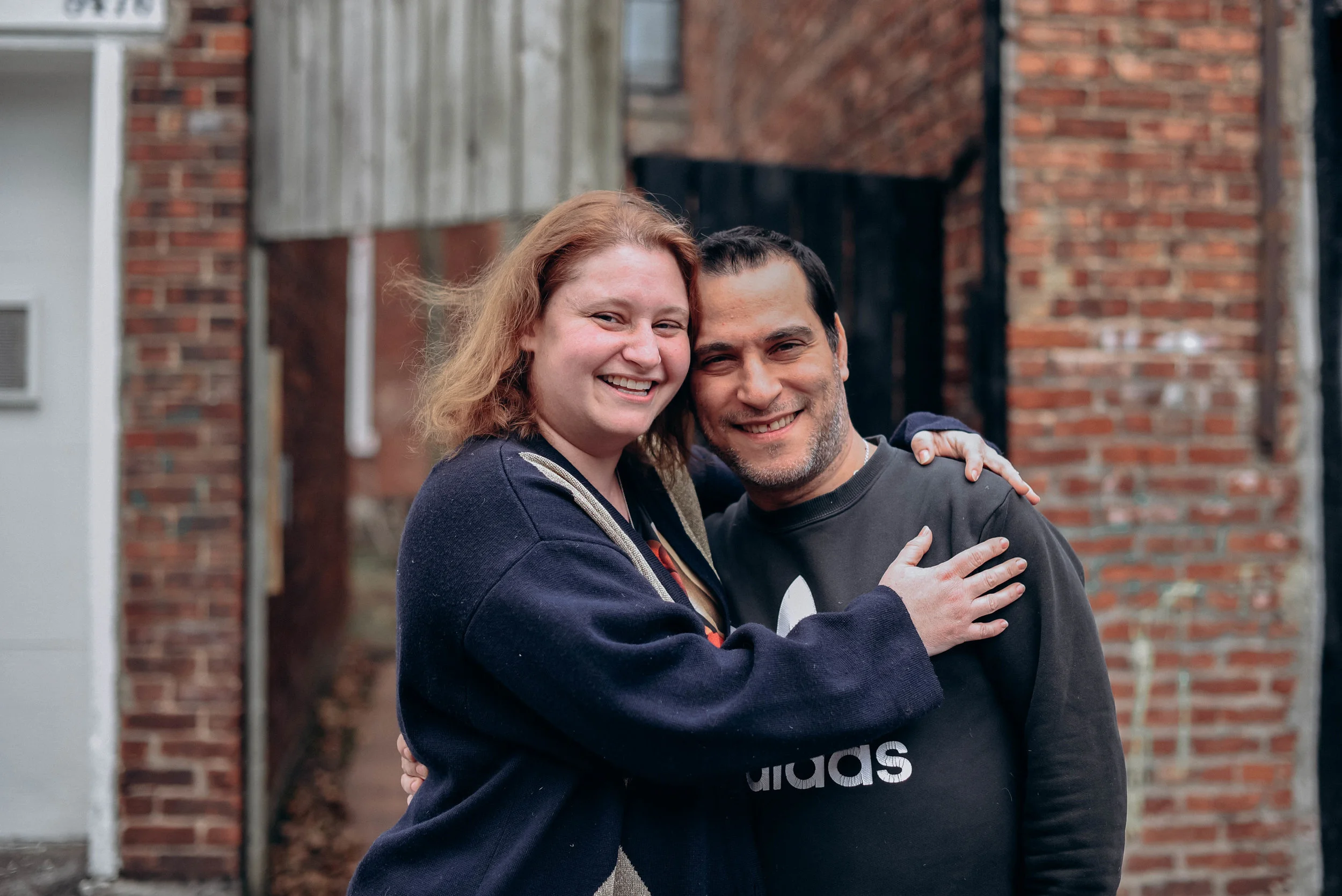Story #36 - Maëlle, Montréal QC (CANADA)
It took us a long time to have children because it simply didn’t work. We were living in France back then – roughly eleven years ago – and they ended up giving me something to help ovulation. We got lucky because it took the first month being on the medication. At my six-month ultrasound, they told us there was something wrong with the heart and that I’d have to get more testing done. So, you go back home trying not to imagine the worse, but it’s hard. When we finally met with the cardiologist, he told us our daughter had Tetralogy of Fallot, and she would need surgery after birth. We immediately felt terrible: Was it because my partner had smoked? Was she going to die? Should we terminate? The specialists at the hospital were reassuring, but I still had to do a lot of invasive tests which, luckily, turned out normal. But then, we had to wait. Suddenly you stop buying things for your baby because you don’t know what’s going to happen. I ended up being induced at 39 weeks to be on the safe side. The birth wasn’t great, mostly because I wasn’t allowed to do anything. It was like that in France: you can’t move around, and they really push for the epidural. After a couple of hours of labor, her heart rate dropped, and alarms started to ring. People rushed in, and as they lifted the sheets to check how dilated I was, my daughter was there: I had given birth to her and no one had noticed. Because of her heart defect, she was blue and they had to rush her out. I got to hold her two minutes, at most. When I saw her again, she was in a glass incubator. She was about to be transferred in cardiology to assess if she was strong enough for surgery. For 24 hours, I didn’t see my daughter. My partner went with her but he wasn’t allowed to sleep there, so we did not have a lot of information. I felt awful: I had given birth, but I did not have my child with me. The day after, against my doctors’ advice, I went to see her. They yelled at me but I couldn’t care less: I had to see my daughter. That’s all that mattered.
For a year and a half after her birth, I suffered from depression. At the time, I didn’t know it was that, but I felt awful. With the ongoing care for our daughter and the hospital visits, it was madness. My partner only had five days of paternity leave, we didn’t have any friends with kids, and our parents lived far away, so I was alone most of the time. In none of my follow-ups for my daughter did someone tell me about seeing a therapist because it wasn’t normal to feel the "baby-blues" five months in… I also wanted to breastfeed and went to La Leche League to get support. They told me about different positions, but I mainly felt they wanted to me to breastfeed at all cost. My breasts were bleeding, I was crying every night, but I thought, "My daughter has a heart defect: it’s going to be breast milk or nothing." I ultimately breastfed her until she was fourteen months old, which wasn't something you did in France. So I felt judged for that too. In retrospect, it doesn’t make a lot of sense but it was my first child, so we made it work. I had to get her to the hospital every month so she could get her shots and meds – pills, for an infant! – that I then crushed and mixed with a little bit of my milk. Because she was considered a sick child by the government, I was able to get eight months of maternal leave (only three paid). It was financially stressful and, on top of that, we were going through the immigration process for moving to Canada. We tried to do everything at once, which wasn’t great, but that’s how it was. Today, almost ten years after, I realize that with a little bit of help, it would have been simpler. Instead, that distress remained harsh for a year and a half.
When she turned one, I had pelvic organ prolapse. I had to have reconstructive surgery and, added to the comments of the male medical staff – "We only see that in old people," that kind of stuff – it affected my recovery and ability to feel good about myself. Only when my daughter turned twenty-two months, and I started working again, did I begin to feel better. We wanted more children but weren’t sure if we wanted to have them close to one another. At the same time, we were aware that life doesn’t always happen the way you want. We had also just immigrated, and we needed time to heal and build this new life. When our daughter was three and a half, I had a miscarriage. I thought it was just an abnormally heavy period and went to see my gynecologist. This event kind of triggered our desire for another baby, and I got pregnant about a year after. I was happy, but I felt from the get-go that something wasn’t right. We did an ultrasound, and we found out it was an ectopic pregnancy. Either I was going to have an abortion if it was small enough, or I would have to go through surgery. They tried the former but it didn’t work, so I had to go under anyway. They told me the embryo was so big I could have hemorrhaged, and because of that, they had to remove a fallopian tube. I was devastated. After that, I had to wait another three to six months even to try again. We went to a fertility clinic, and I only needed one procedure to get pregnant again with our son. We got lucky. I was under constant medical care, but the pregnancy went well all things considered. At forty weeks the baby stopped moving so I had to be induced. I didn’t want to because of my previous experience in France, but here in Quebec, it’s very different. I was able to move, and the nurses were supportive. It was very healing to know my body was able to do it. I was also able to breastfeed more easily afterward because I felt supported. My husband took one-year off, and new friends from work would bring food over: we’d found our village.
I got pregnant again by accident a year after. I had never imagined myself with three kids but, you know… life. We let ourselves be excited, pictured a family of five, but at the six-month ultrasound, we learned that our baby was suffering from severe defects. The doctors told us that the only care she could receive would be palliative. We had to decide what to do next, which was the worst decision of our lives. When the pregnancy came to a term, I still had to give birth to her. You are brought apart from the other women in the maternity ward, in a small room where everybody whispers. It's quite beautiful and calming. Every birth should be that way. They gave me a pill to induce labor, and that was it. There was only one person on staff to welcome her because, well, there was nothing else to do. It was important for me to be able to hold her afterward, and I got to do it. We were in a gentle bubble. Sadly, the placenta wouldn’t detach, and they had to rush me to the OR. This… this really killed me. The surgery lasted longer than expected because my oxygen level had dropped. Thankfully, when I woke up, I was able to see my daughter again. We stayed together for another day. You know, people tell you that you’re still young and can try again later, but I don’t think so. My body is telling me that it doesn’t have the energy anymore. I’m also seeing a therapist this time to help grieve, and because I believe I went through a lot postpartum-wise. Our son was small when that happened, but it was hard for our older daughter. She knows she has a little sister and she knows she has passed. We're getting her some help too. I was lucky to get six months off after but my partner got nothing. It’s hard. And your village, well, it became more scattered after. We have her ashes in a little urn, here at home with us, but people don’t know what to say. How do you talk about this? About this child who is here, always, but didn’t get to meet them? To grieve a child who never lived outside the womb… it’s not easy.



